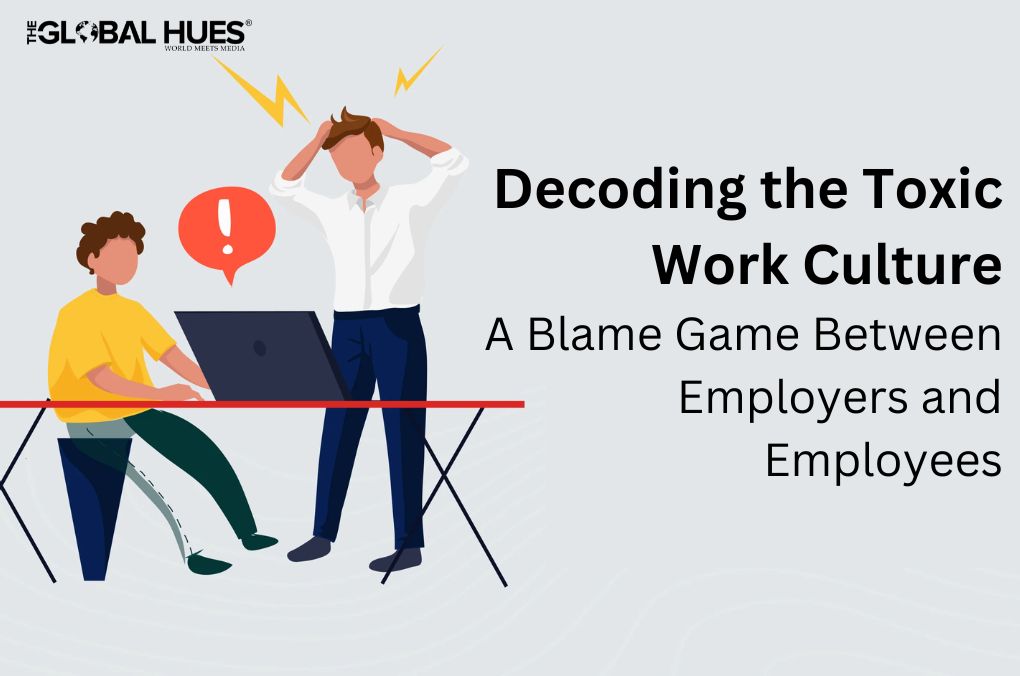Harappa Insights recently conducted a survey to uncover the factors contributing to the high rate of job resignations among Indian employees. Although it was initially believed that the pandemic was the primary cause, the trend persisted even after the removal of Covid-related restrictions, indicating the presence of additional influences.
According to the survey findings, the main cause of the widespread employee resignations was identified as toxic bosses and toxic workplaces. This discovery challenges the commonly held belief that employees primarily leave their jobs in search of better opportunities and higher salaries.
Among the respondents, 58 per cent cited toxic bosses as the reason for their job resignations. These bosses were responsible for fostering an unhealthy competitive atmosphere among colleagues and neglecting their overall well-being. Additionally, 54 per cent of respondents attributed their departures to toxic work environments, characterised by office politics and unethical behaviour displayed by employers.
But wait!
Are we forgetting to look at the other side of the table?
While bosses are the ones we always blame, employees can be at fault too.
Toxic employees can destroy even the most successful business. How?
When surrounded by toxic colleagues, almost half of the employees may reduce their productivity and deliberately allocate less time to their work. They can even make other employees feel that they hate their jobs. They also are the ones who make a workplace toxic eventually forcing the hard-working employees to leave their jobs.
To our surprise, there are different types of toxic employees.
-
One Who Gossip
The word ‘Gossip’ says it all. They are the ones who love to create drama through rumour-spreading and have a tendency to meddle in everyone’s affairs.
-
The Rebels
These are the employees who harbour a strong dislike for anyone who holds power over them. They reject external authority, possess a huge ego, and get easily offended. Attempting to dominate or control this person is seldom successful, and the most viable choices are either terminating their employment or making them feel like they are self-employed.
-
The Closed-Minded ‘Know It All’ Employees
They are often resistant to new ideas or perspectives, believing that they are experts and already know everything. These employees may display arrogance, refusing to acknowledge their own limitations or learn from others. Their fixed mindset and self-assuredness hinder collaboration and innovation within a team or organisation.
-
‘Just’ Employees
These are just employees who are working just for money and will not go the extra mile for any work. They deliver exactly what they are paid for, without putting in any additional effort. If any additional tasks or responsibilities are assigned to them, they perceive it as exploitation rather than an opportunity to showcase their capabilities. These employees are not necessarily problematic but are average in terms of performance.
-
The Procrastinators
These employees excel in the art of procrastination, consistently shifting their responsibilities onto others and offering excuses for their inability to complete their work. They pose a significant obstacle to the progress of any organisation.
-
The Instigators
They lack ambition in life and use flattery as a tactic, hoping to gain favouritism. They love to do office politics and instigate other employees.
What’s the Solution?
Managing toxic employees necessitates a thoughtful and strategic approach to mitigate the detrimental effects they can have on the overall work environment.
Consider employing the following strategies to effectively manage toxic employees:
- Invest effort into understanding the underlying causes of their problematic conduct.
- Keep a record of instances of toxic behaviour for reference and documentation purposes.
- Provide honest and direct feedback to the employees, addressing their negative actions and their impact on others.
- Clearly communicate the repercussions of their actions, ensuring they comprehend the consequences of their behaviour.
One Rotten Apple Spoils The Barrel
Leaders who wait to take action against toxic employees risk losing everything. Sometimes, employers need to fire these employees too. If they plan to do that, they have to be extremely careful as employees of such type quickly resort to online review platforms to publicly criticise their former employers and the organisation.
They can start by recording the offences committed by such employees. This documentation will help establish a consistent pattern of behaviour, the actions taken to address it, any information or resources provided to the employee, and ultimately, their failure to improve. They can maintain a record of formal complaints, performance evaluations, and other relevant documents to safeguard both themselves and the company. These records will serve as indisputable evidence justifying the decision to terminate such employees.
Summing Up
Blaming a toxic work culture solely on either employees or employers oversimplifies a complex issue. Employers bear the responsibility of creating a positive work environment and promptly addressing problematic behaviour. However, employees also contribute to the work culture through their actions and attitudes. It is vital for employers to acknowledge and take proactive measures to address factors within their organisational culture that contribute to employee disengagement and turnover.



